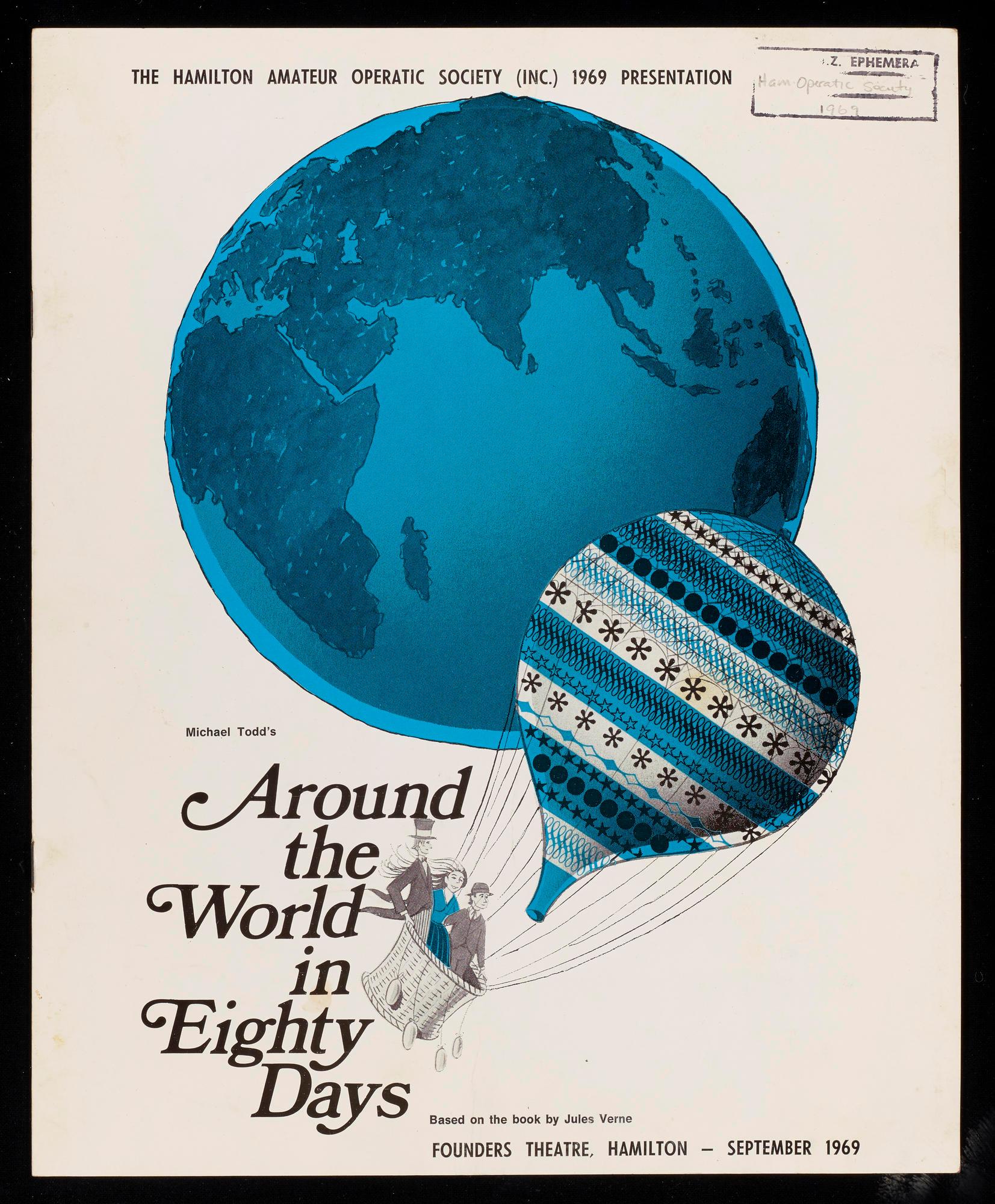

To the series’ credit, ostensibly progressive edits to the source material are made: Ms.
#AROUND THE WORLD IN 80 DAYS CLIFF NOTES SERIES#
But the series paints a picture suggesting otherwise. There’s certainly much to chew on there, but it all unfolds with the emotional weight of a leaf.įogg, Passepartout, and Fix also encounter a few real-life historical figures, including Jane Digby (Lindsay Duncan), the aristocratic adventurer, and Bass Reeves (Gary Beadle) escorting a fugitive in a post-Civil War America, where Passepartout realizes that any freedoms he may have enjoyed as a Black man in Europe remain taboo in the U.S., even though slavery and racism are also woven into the fabric of the European experience. And Passepartout, despite being multilingual, intelligent, and possessing various talents that prove useful on their travels, still has to navigate the 18th century as a Black man, and all that entails. Fix is a woman navigating a man’s world, a journalist with a father who prefers she be married with children. His manhood is challenged, and he’s repeatedly prompted with questions about whether he can actually complete the journey. And off they go, rising above the violence on the ground.Īlong the way, they encounter a variety of obstacles while wrestling with personal demons. It all may have been as easy to forget as the series discards it, if Ashley Pharoah and Caleb Ranson, who developed “Around the World,” didn’t invest an inordinate amount of time into that catastrophic event, likely in a bid to suck in viewers in with cheap emotionality.īut it’s all tossed overboard, and by the episode’s final moments, the trio stumbles upon Fogg’s “magnificent flying device,” aka a hot air balloon. “They don’t behead rich people anymore,” he teases a flummoxed Fogg, during a series of events that ends with Passepartout witnessing Gerard, and his fellow insurrectionists, killed in what amounts to a blaze of glory. Flyers that read “Freedom! The day of glory has arrived!” flutter about, as mass protests, which Passepartout’s idealistic brother Gerard (Loic Djani) is part of, consume the city. It’s the first episode and France is the backdrop, amid the discontent of a growing working class, years after Jean Valjean was swept into the 1832 Paris Uprising. And while PBS’ iteration foregrounds class warfare in an early setpiece, it does absolutely nothing with the prompt afterward. The Michael Anderson-directed 1956 film starring David Niven and Cantinflas - the most accomplished of all the novel’s adaptations, winning five Academy Awards, including Best Picture, even if its legacy has faded over time - at least attempted to satirize the rich, despite its reliance on stereotypes. Yet this adaptation fails to reassess themes ripe for reimagining, nor is it structurally or stylistically original. The rules are esoteric, and indeed, it’s a game that’s historically been great story fodder, and how the winner is decided is usually more interesting than who wins. Sometimes, the consequences are wide-reaching, even if coincidental, and may or may not benefit the greater good.

It’s an adventure prompted by a timeless theme: men and the quintessential sources of many pissing contests - ego and money.

He sets out with his French manservant Jean Passepartout (Ibrahim Koma) and Fortescue’s daughter, Abigail “Fix” Fortescue (Leonie Benesch), to win the wager. It’s England in the late-1800s, and the three men are Bernard Fortescue (Jason Watkins), Nyle Bellamy (Peter Sullivan), and Phileas Fogg ( David Tennant), the story’s main protagonist, who makes a wager of £20,000 ($3 million today) that he can circumnavigate the world in 80 days or less. ‘White House Plumbers’ Review: Woody Harrelson & Justin Theroux Make Fine Stooges in Watergate Farce It’s not Elon Musk, Jeff Bezos, Richard Branson, and the new space race, but can you spy the subtle parallels? PBS’ version opens with three Englishmen of obvious privilege in conversation around a table in a members-only men’s club, wagering whether the pre-passenger-flight-era feat of human ambition and technological marvel implied in the title is achievable. Any new take on Vernes’ classic, even after taking into account that 2022 marks the 150th anniversary of its original publishing, ought to be as adventurous and inventive as the story that inspired it. Under those terms, given the eight-episode end product that premieres tonight on PBS, there’s little explanation for this new adaptation of “ Around the World in 80 Days,” Jules Vernes’ most adapted work (across television, film, theatre, gaming, and radio). If any new trends catch on in 2022, one should insist on every film or television series justifying its existence beyond its potential to make a profit - especially when it comes to adaptations of IP previously adapted in multitudes.


 0 kommentar(er)
0 kommentar(er)
